Almost 700 people attended the Conference on Research Data Infrastructure (CoRDI) 2025 at RWTH Aachen University. The three-day conference, held from 26 to 28 August at C.A.R.L. (Central Auditorium for Research and Learning), focused on making better use of research data and the resulting added value for science and society. The motto ‘RDM (Research Data Management) in Action’ was reflected in all presentations, discussions and posters.
In her video message at the opening of the conference, Dorothee Bär, Federal Minister of Education, Research and Space, said: ‘Some meetings take place at exactly the right time, and this is one of them. CoRDI could not be more pressing, important or valuable. There’s so much to discuss, so much to do.’ She referred to topics such as the role of NFDI in the European Open Science Cloud (EOSC), the relevance of sovereign research data management in the international arena, and the importance of research data for innovation and progress. In the following, we present five highlights from the perspective of NFDI and many more highlights from the perspective of the participants.
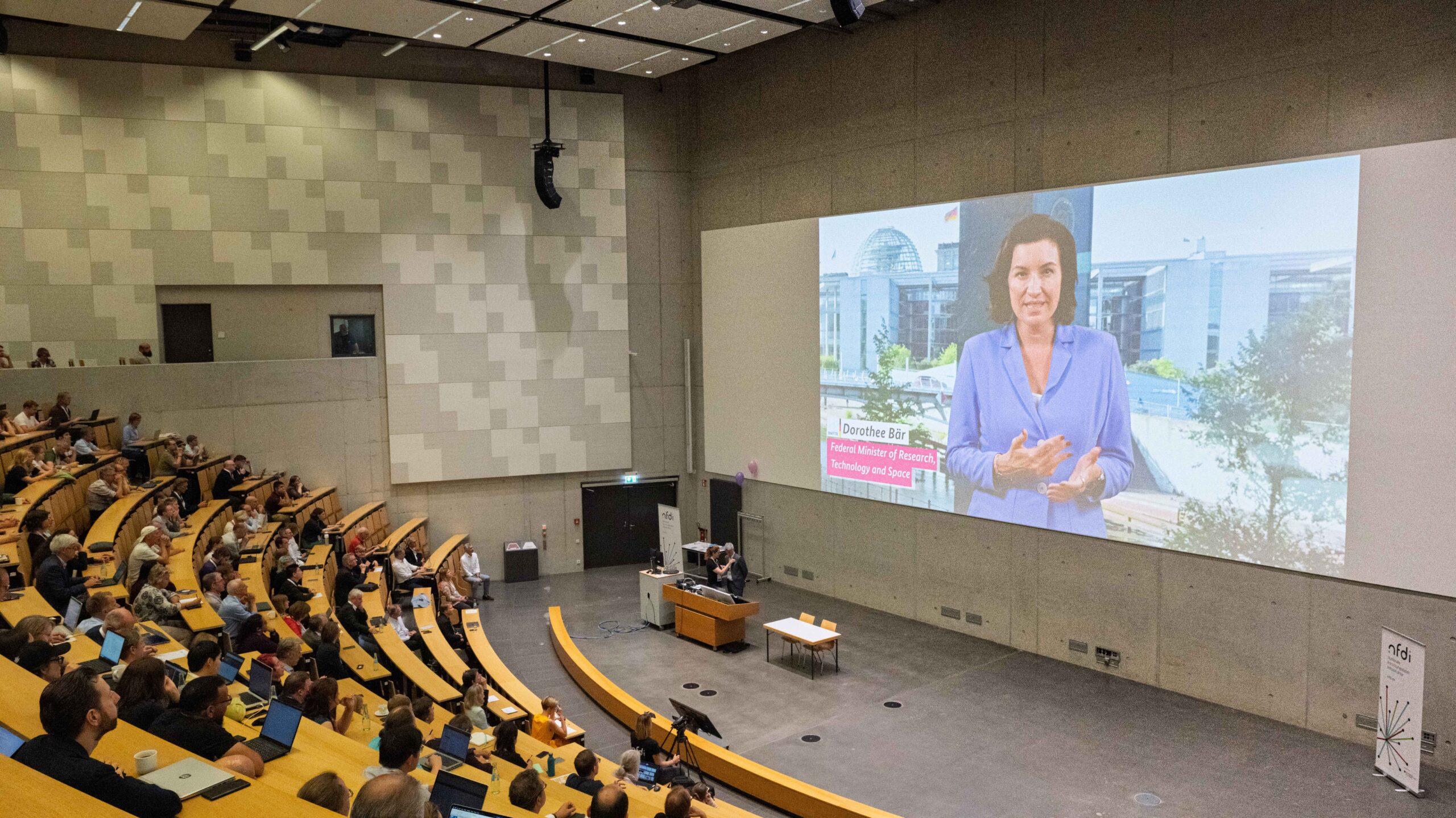
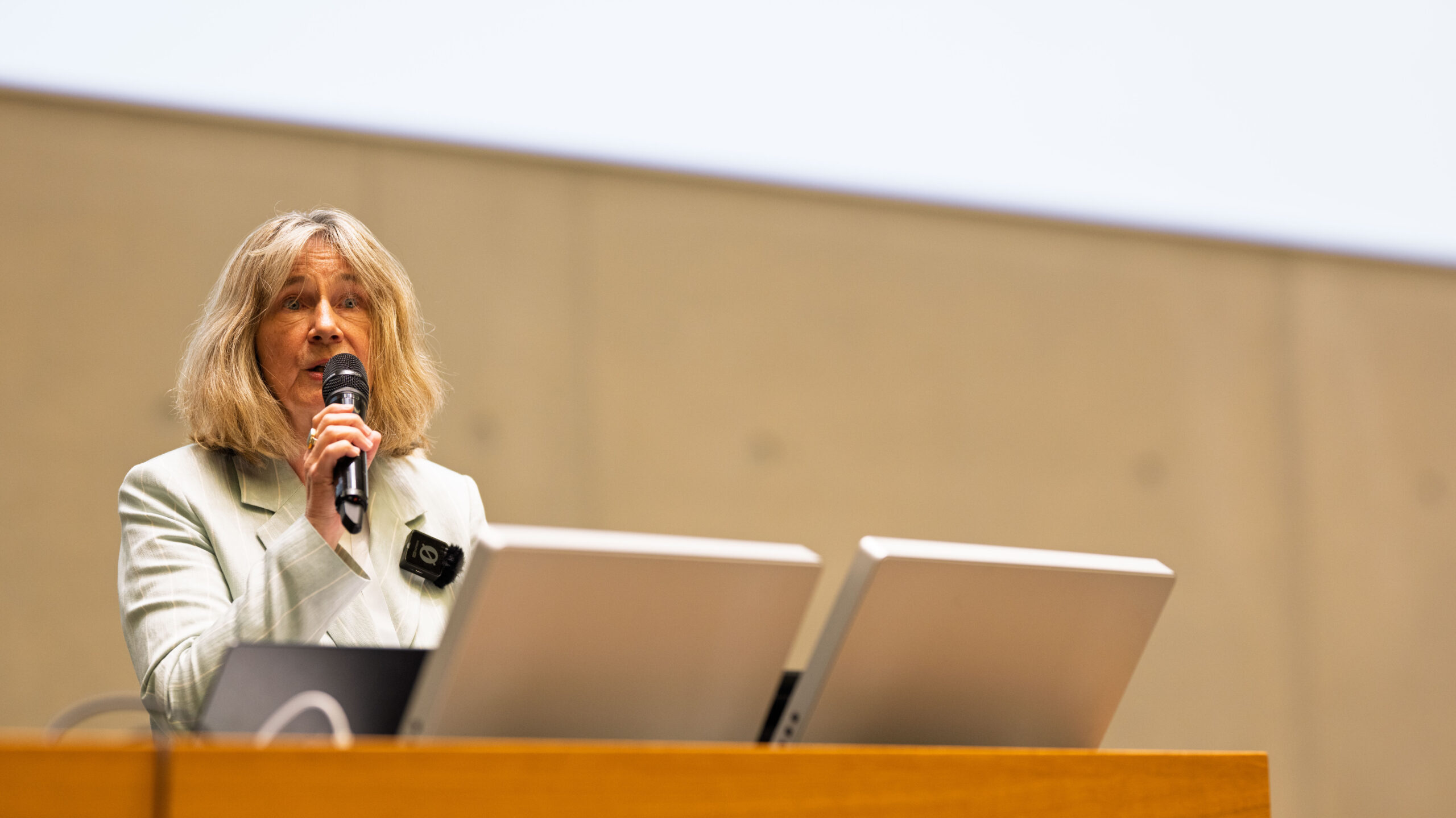
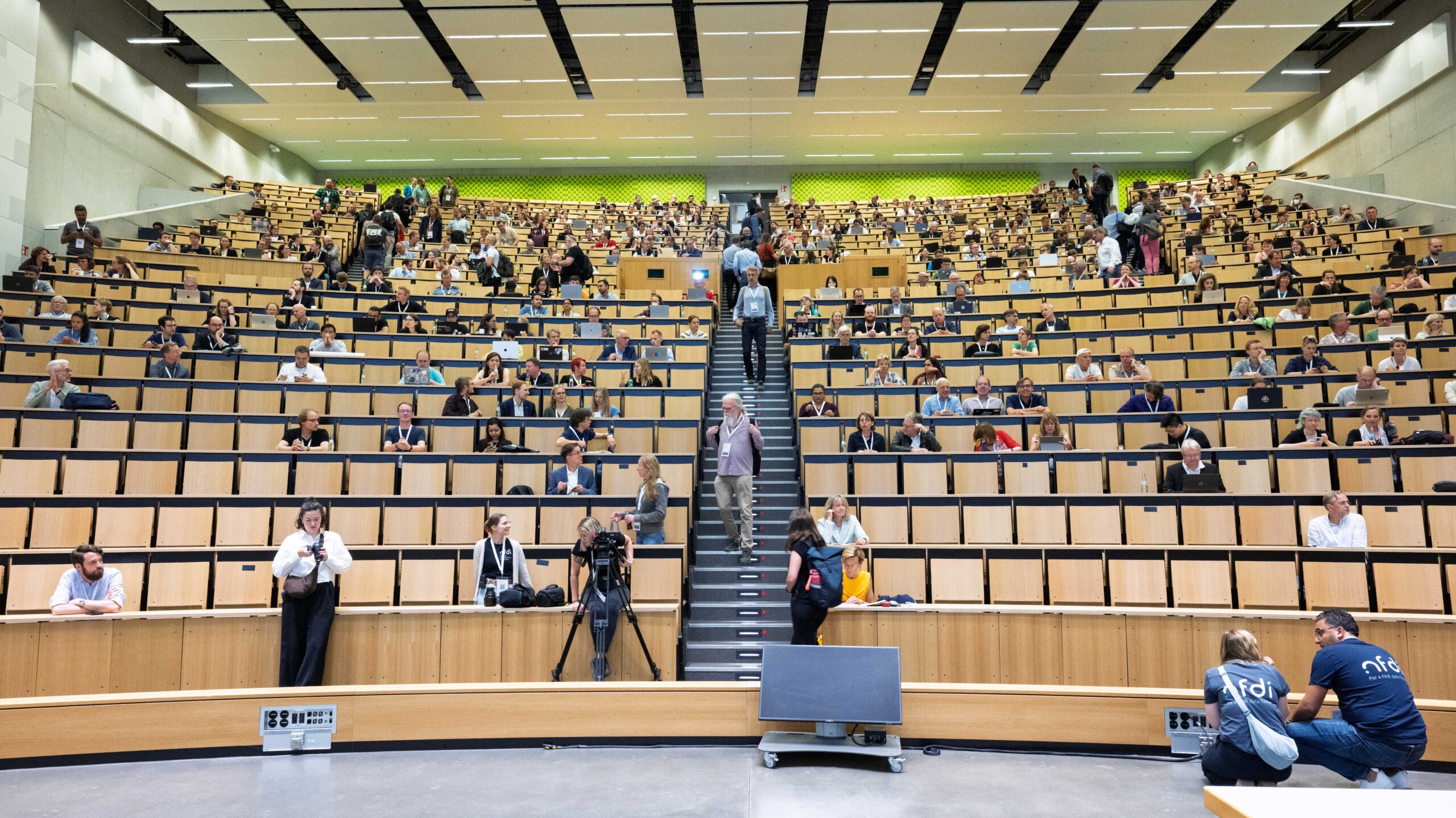
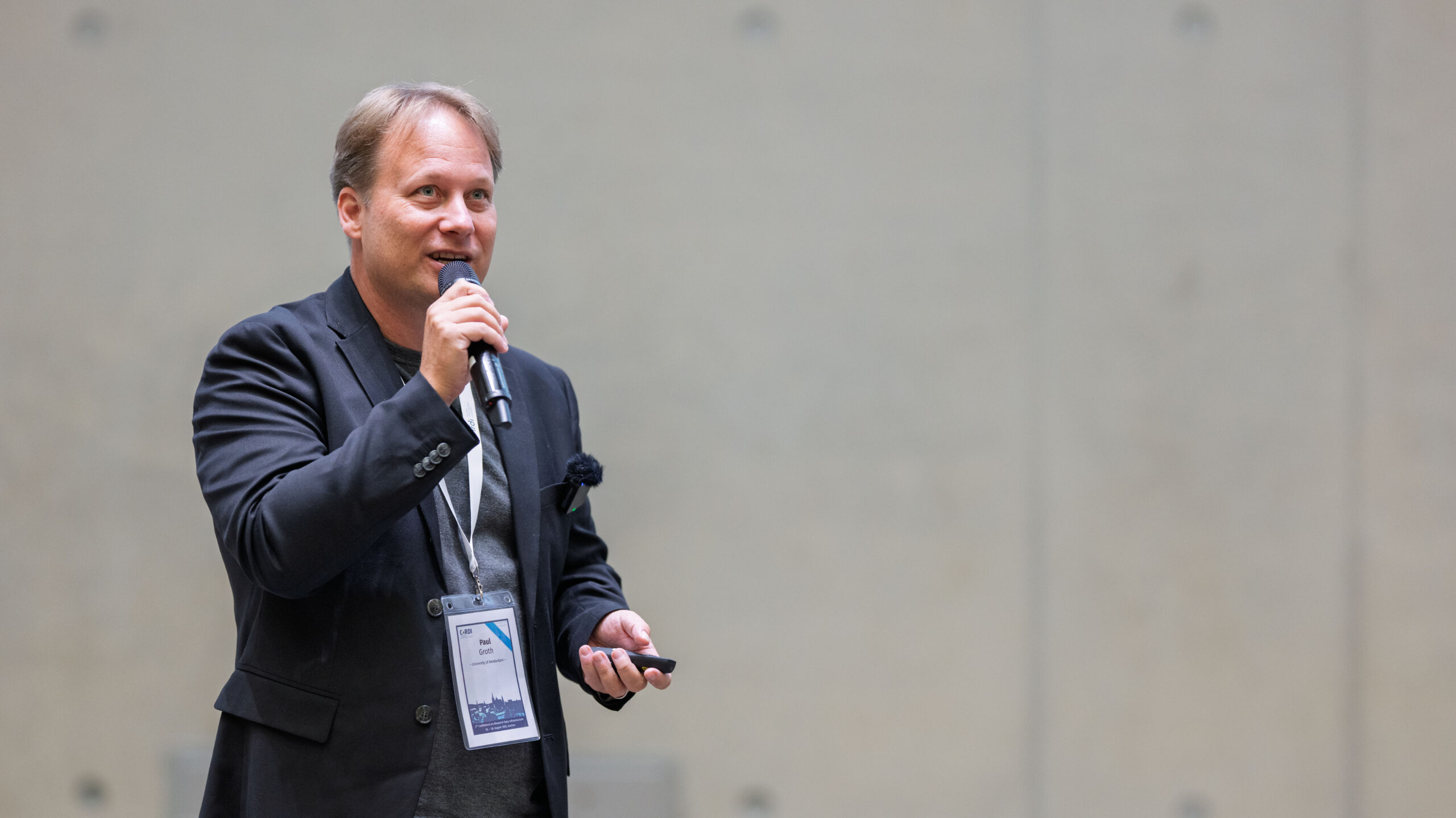
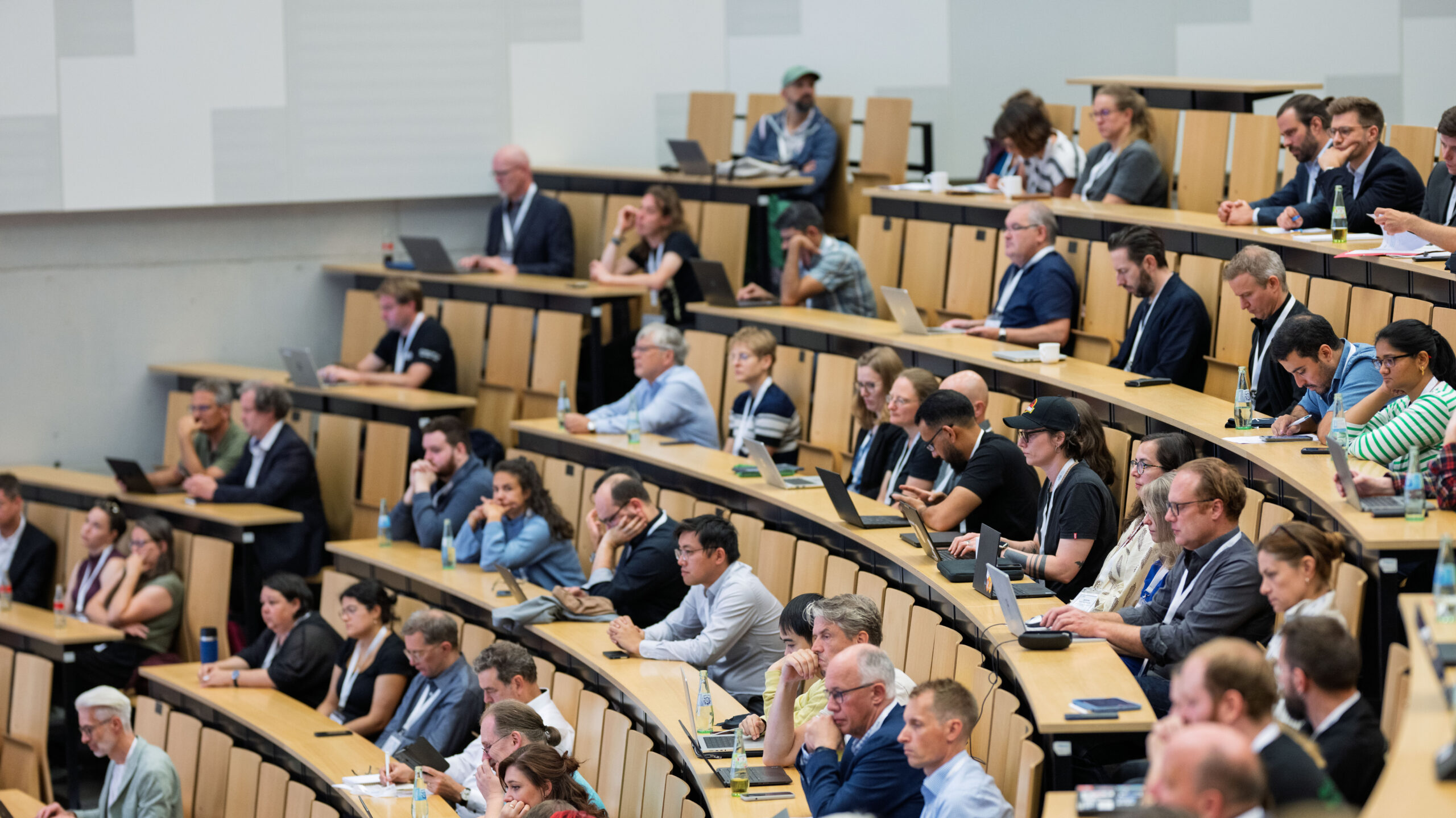
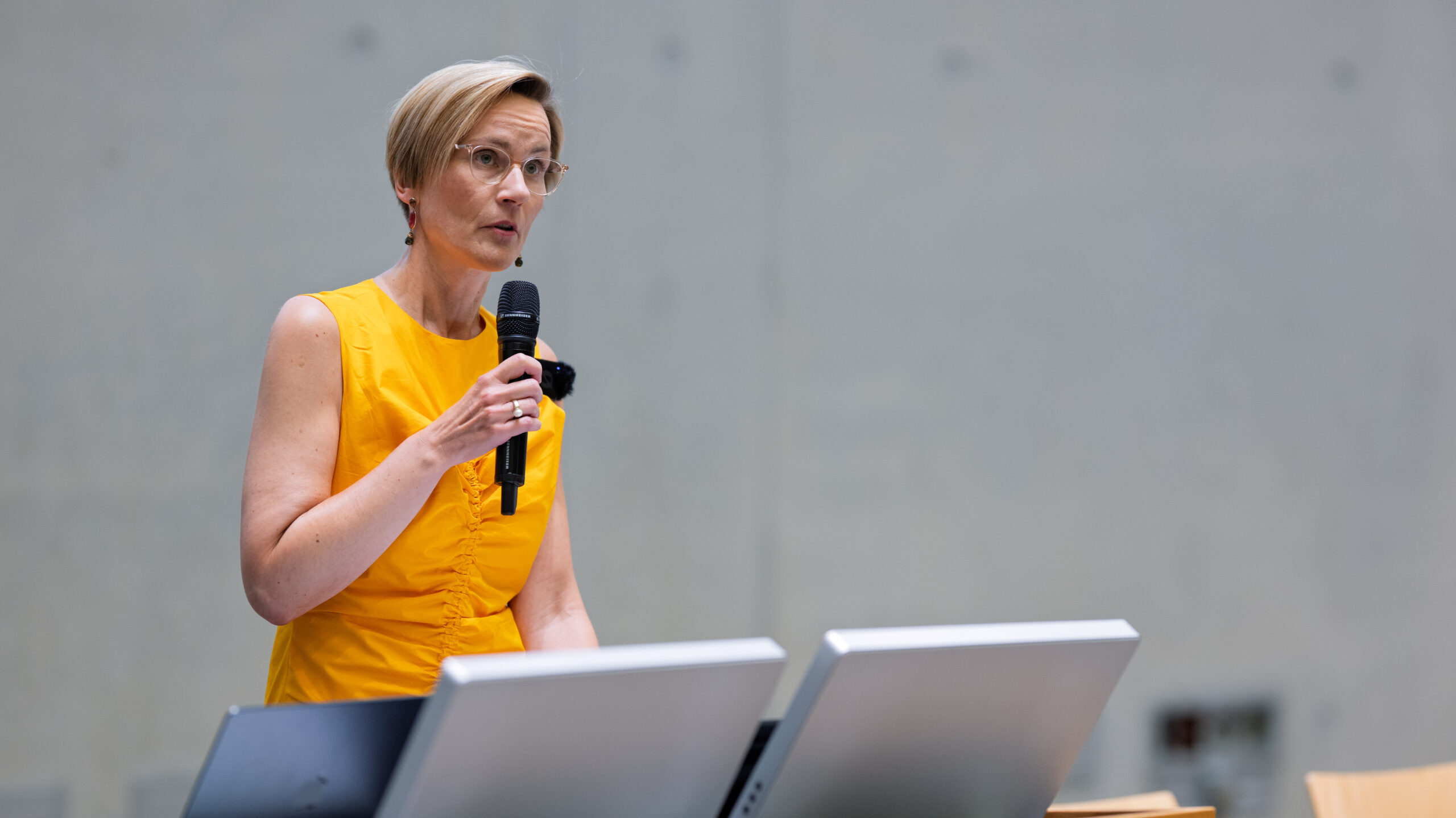
My highlight at CoRDI 2025 was the lively response to our EXPLORE talk. The many concrete questions on using LHC Open Data for teaching and cross-disciplinary projects confirmed the need for a low-barrier, FAIR analysis service.
The scientific infrastructure community is growing closer together! It was great to meet not only NFDI consortia but also representatives from
specialised information services, service providers, community projects and software projects.
Highlight 1: A meeting place for the entire network
Around 680 people registered for CoRDI and 660 were present in Aachen, which corresponds to an extremely low no-show rate of approximately 3 per cent. The participants came from a total of 13 countries: Australia, Austria, Belgium, Czechia, Germany, Greece, Italy, the Netherlands, Italy, Russia, Slovenia, Spain, Switzerland and the United Kingdom.
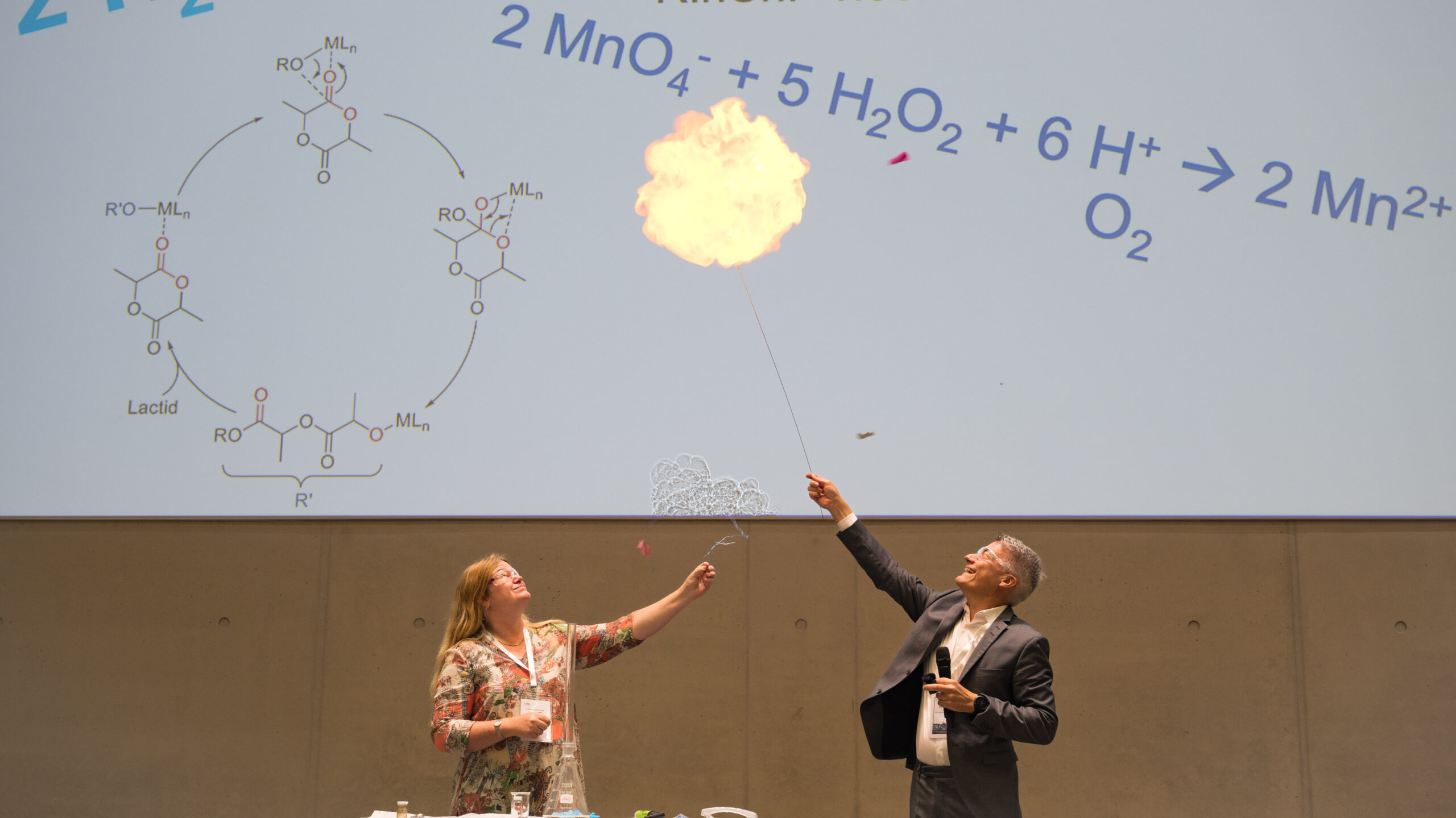
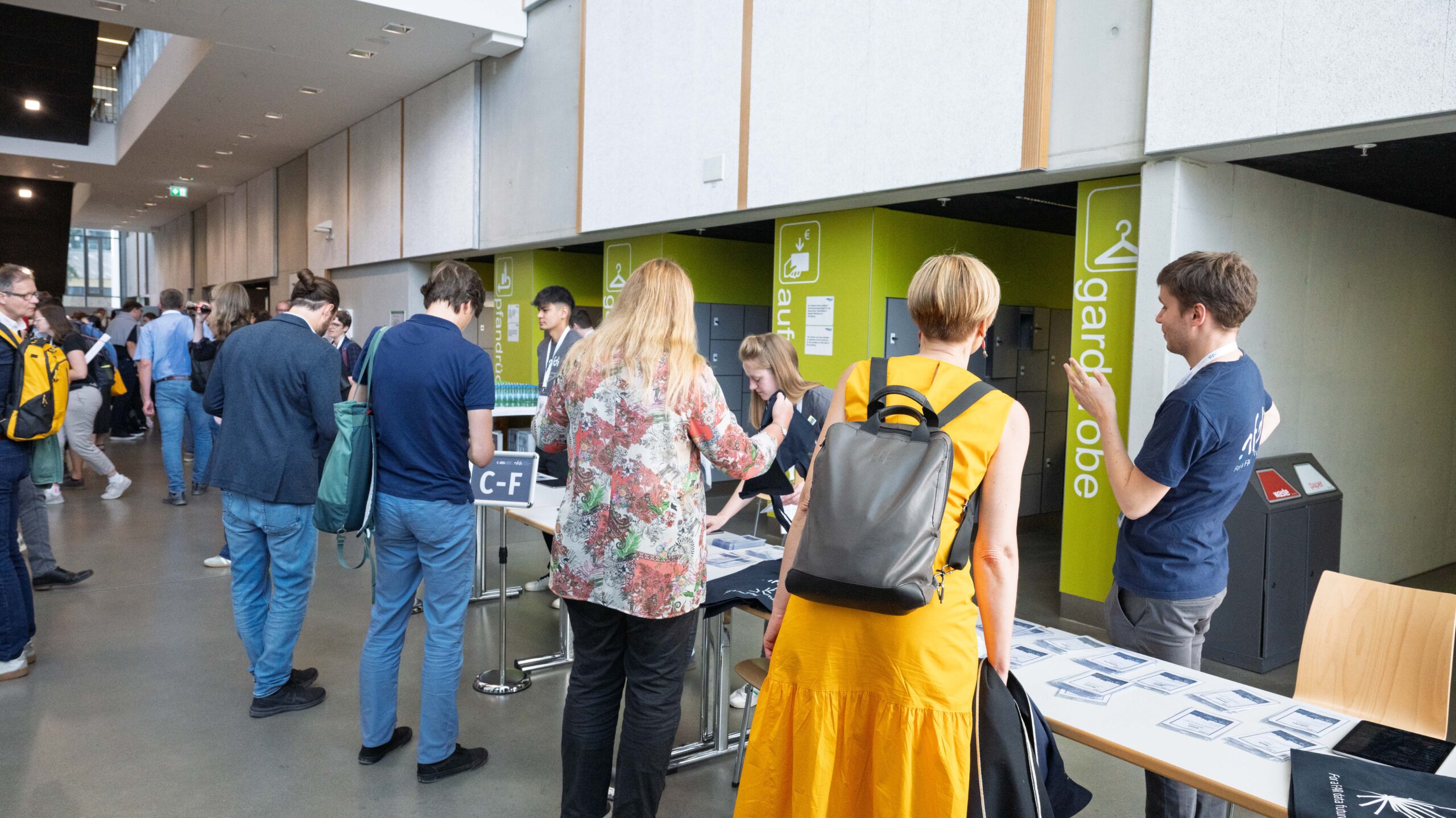
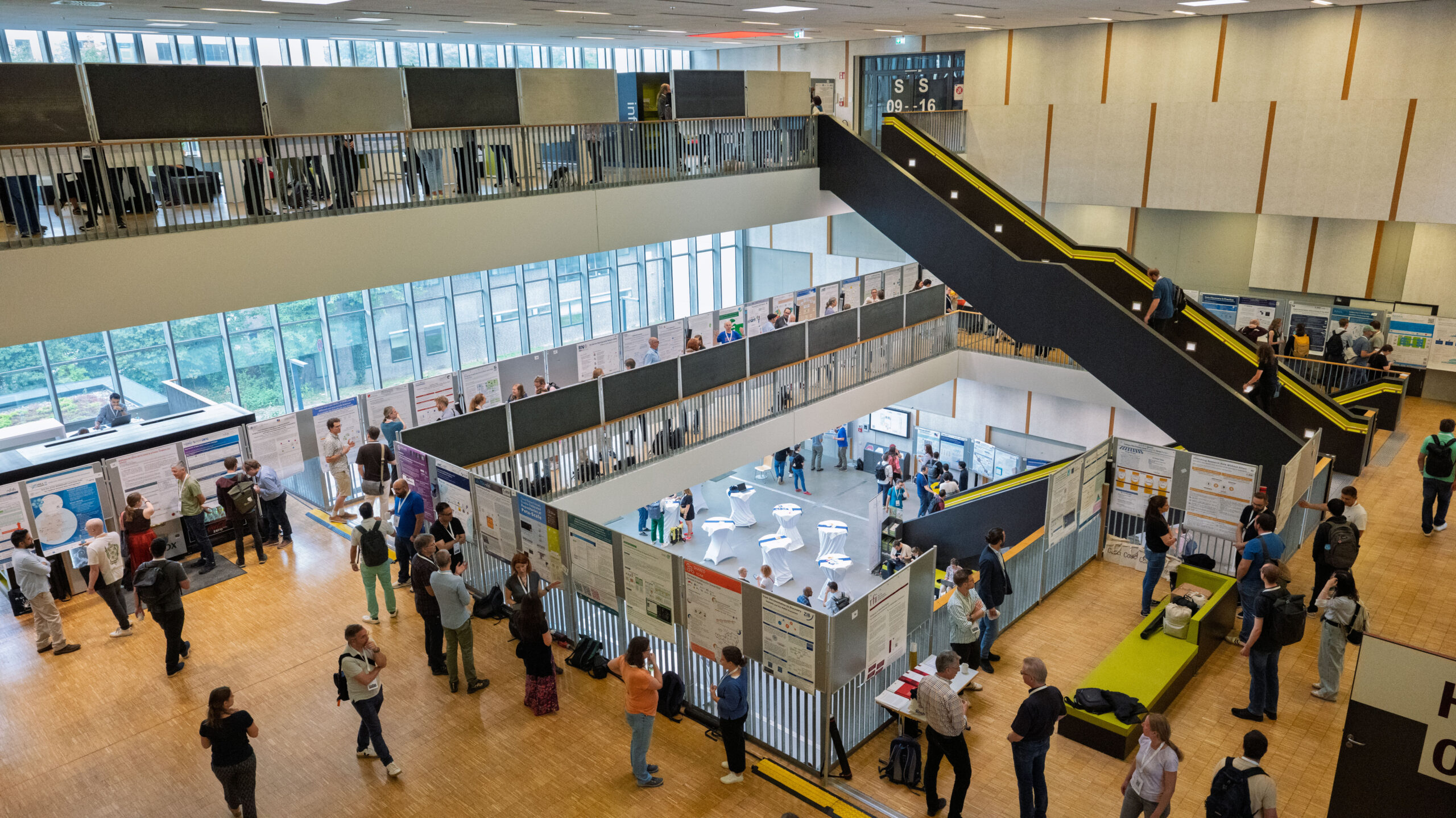
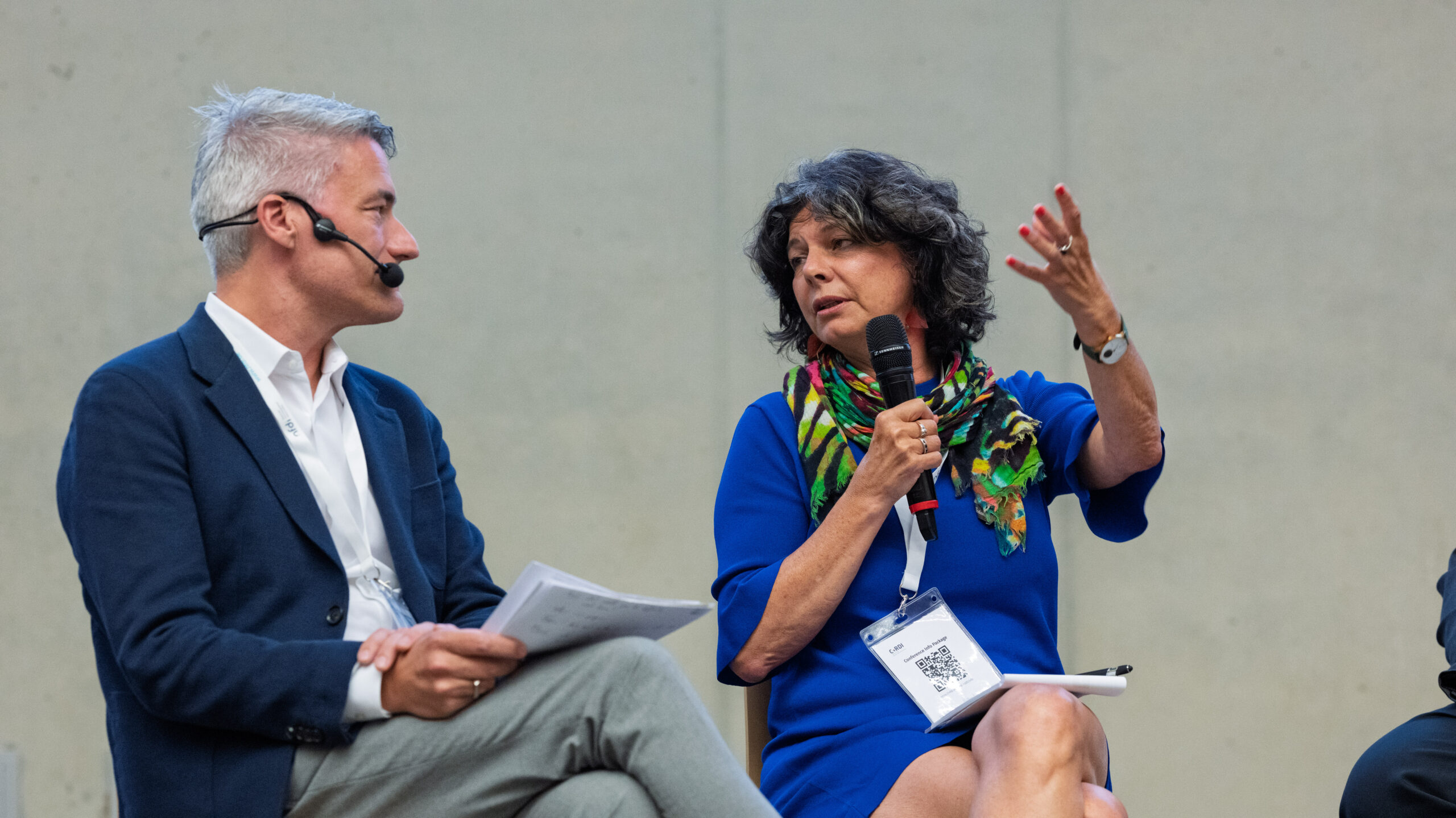
I was also part of the first CoRDI, and I find it incredibly inspiring to see how the network has grown and how many fantastic collaborations have emerged. But what’s even more thrilling is the incredible people who are constantly pushing the boundaries to elevate research data management in Germany.
I found it amazing to see how ideas and concepts have turned into many concrete tools and real services over the past two years. Our challenge will be to connect these tools and services with each other over the next few years and bring them to the respective communities.
Highlight 2: Programme diversity for all disciplines
CoRDI kicked off with a big bang in the form of a chemistry experiment with a hydrogen-filled balloon and continued in quite spectacular form. The variety of contributions from all disciplines never ceased to amaze the NFDI team, at least. A total of 140 presentations emerged from eight tracks (four disciplinary and four interdisciplinary tracks). The abstracts (together with the poster abstracts) can be found in a dedicated CoRDI2025 zenodo community: https://zenodo.org/communities/cordi-2025/
The two keynote speeches were particularly noteworthy. Robert Finn’s presentation, ‘Delivering EMBL-EBI’s life science data resources in a world of growing data and impacts from the use of artificial intelligence,’ focused on the growing demand for linking different types of data for the purpose of developing AI models and on ways to enrich and provide resources with the help of AI.
Cathrin Stöver’s keynote speech, ‘GÉANT in a nutshell: Why dedicated connectivity and services for science and education are indispensable for Europe’s scientific leadership,’ focused on the central role that e-infrastructures play in research and education at the national, European and global levels.
Cathrin Stöver outlined how GÉANT has developed into a successful pan-European internet connectivity network for European research and how a harmonious global service environment has been created over the last 30 years.
In another plenary session on Wednesday, a fishbowl discussion was held on the topic of ‘Discussing success: What makes an NFDI consortium “successful”?’ in which the audience was able to actively participate. This was followed by a panel discussion on the topic of ‘Digital sovereignty: Resilience in research data infrastructures’.
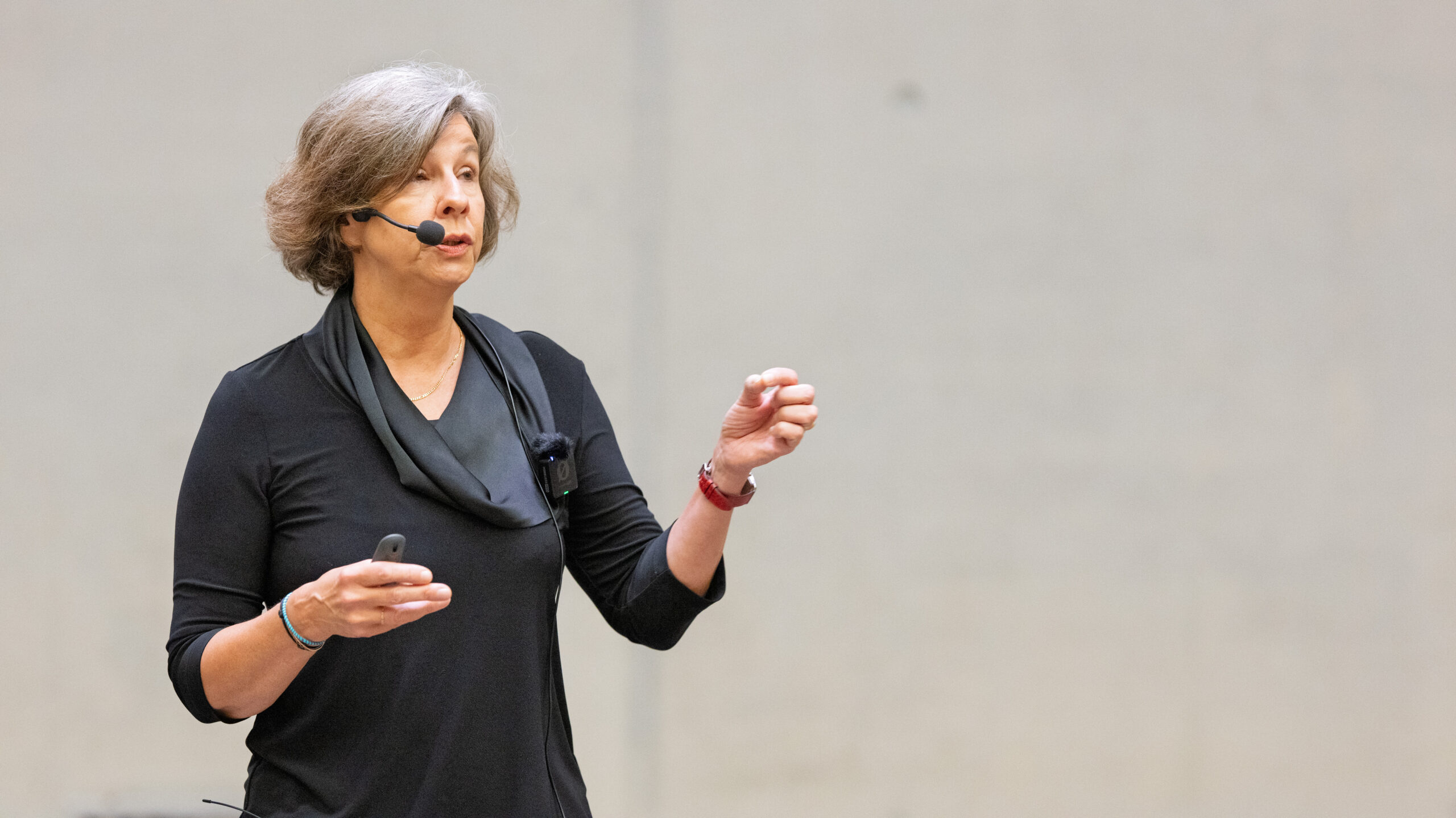
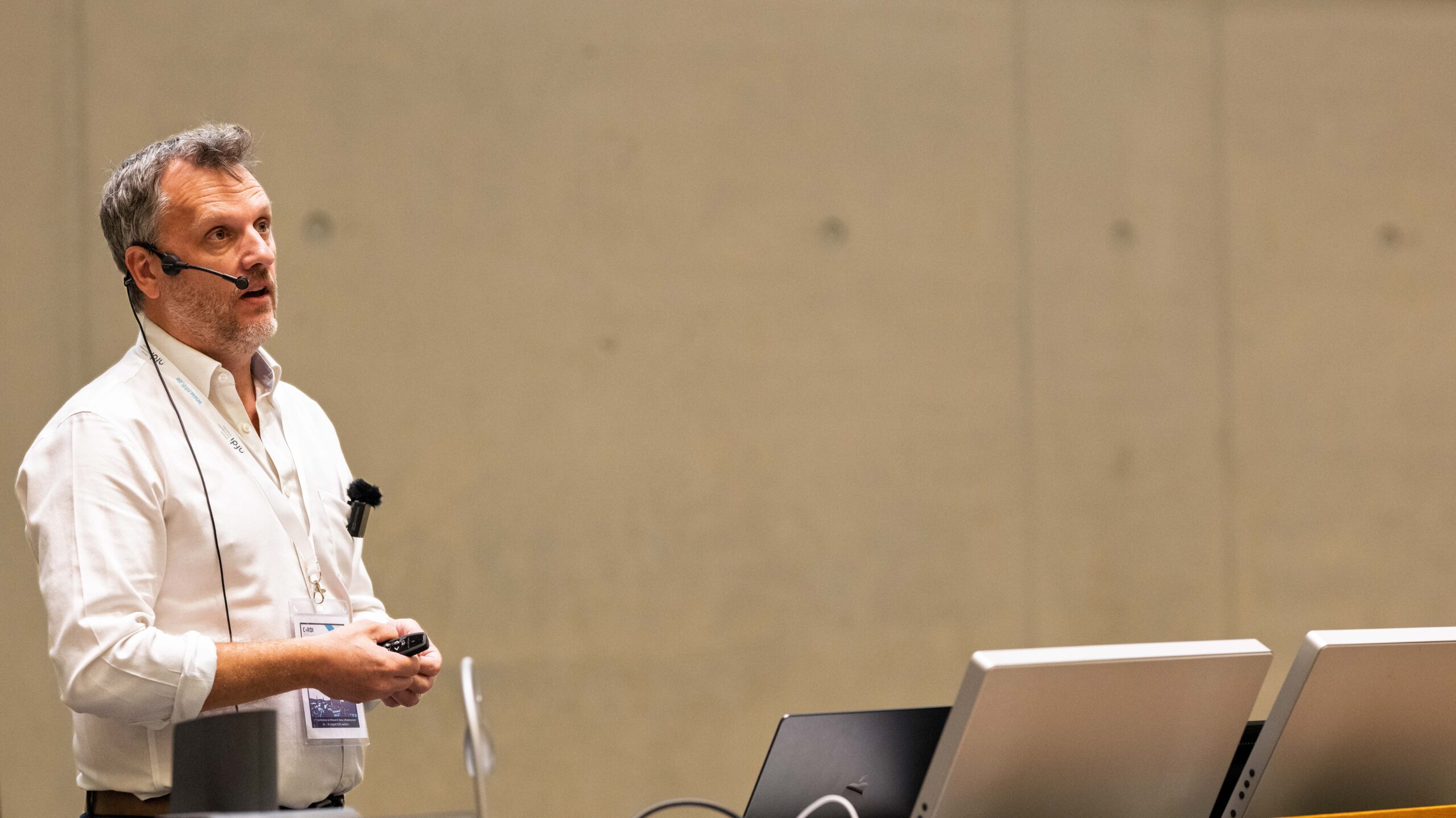
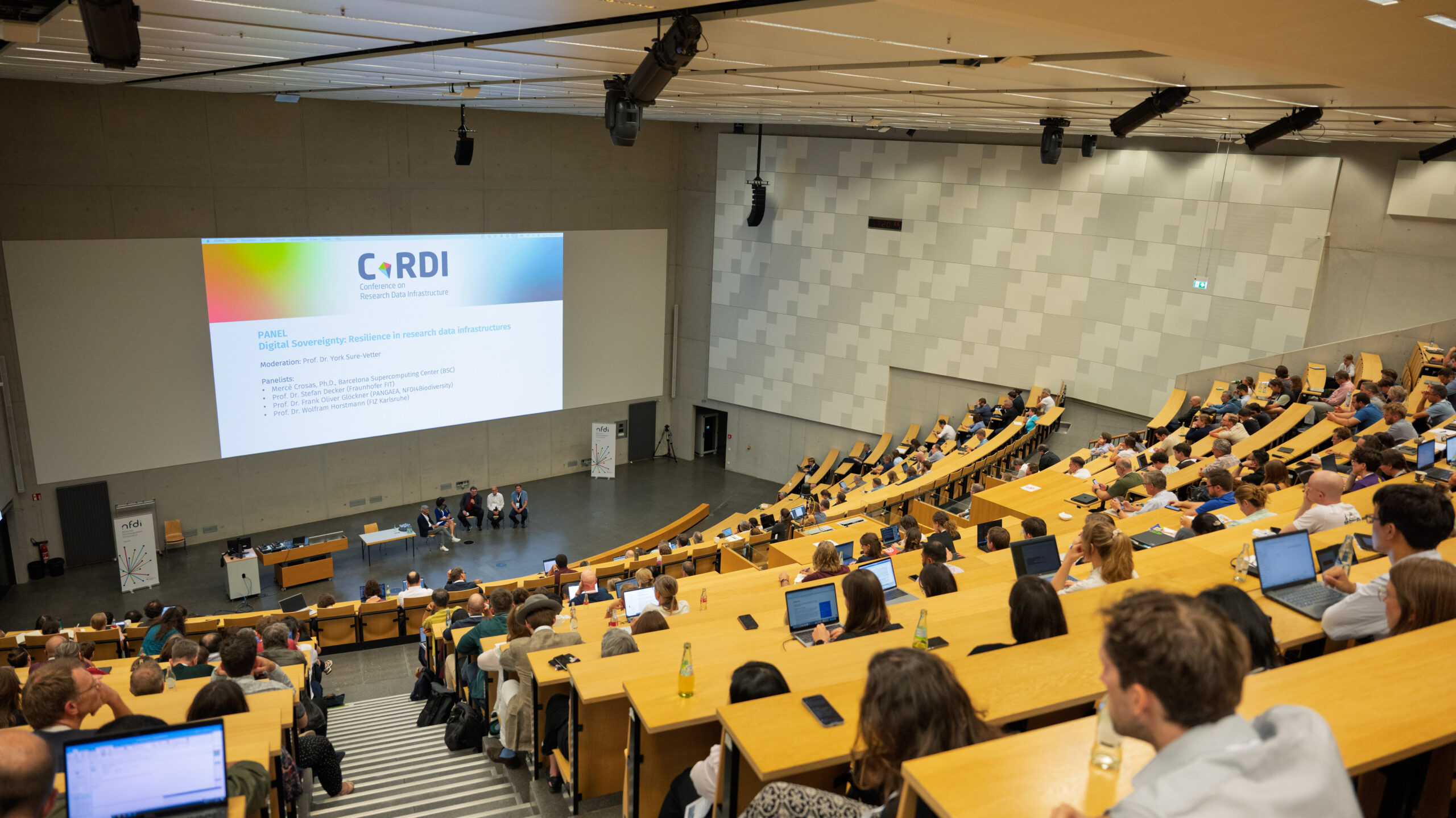
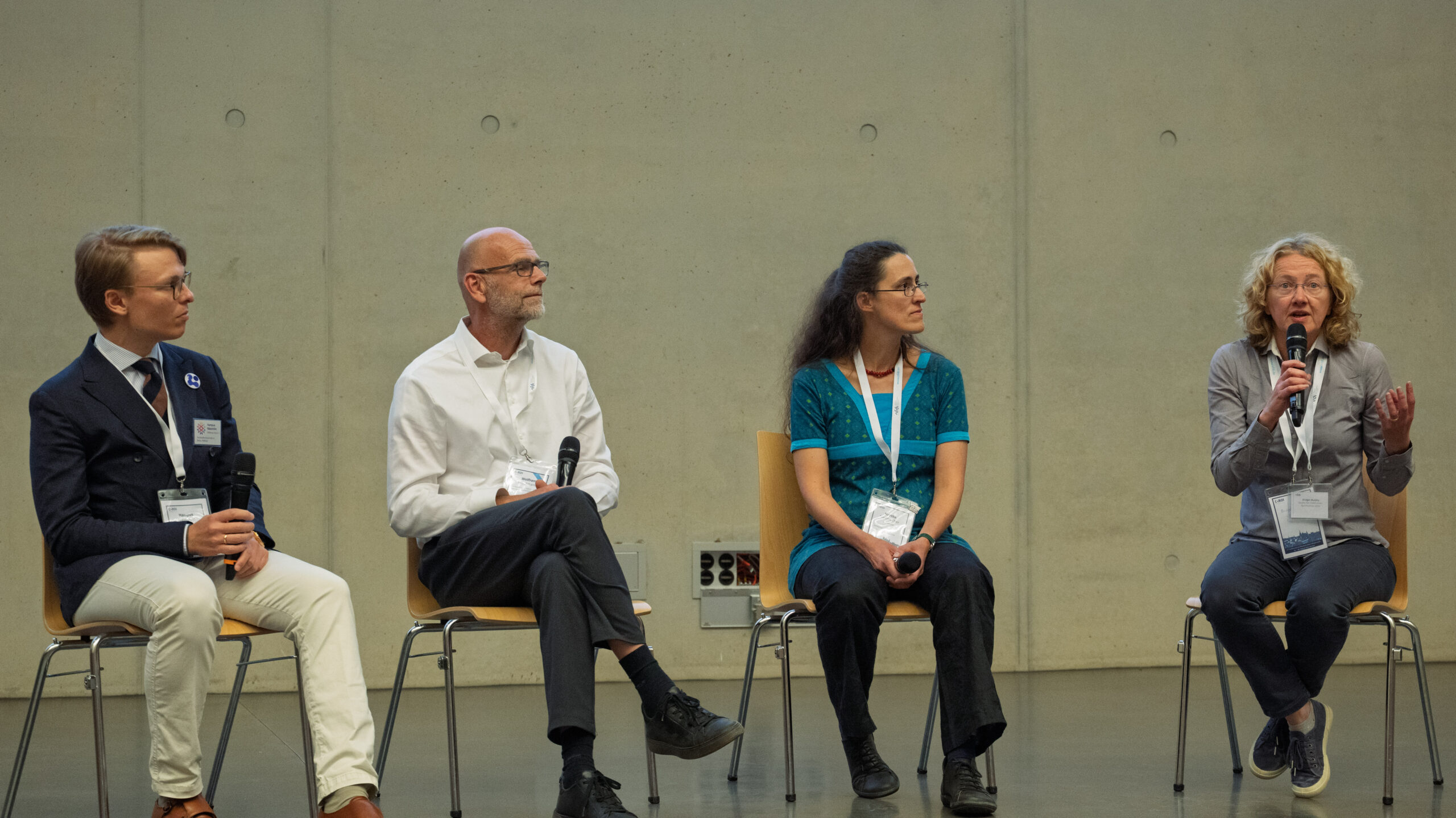
I gained a lot of positive impressions from the CoRDI2025 and liked particularly the interactive formats of pinboard discussions on the future of NFDI and was positively surprised by the lively fishbowl exchange in the large auditorium. The direct interaction at the posters was very informative and gave good feedback from the specialists. The barbecue evening within the “industrial environment” was the highlight.
Highlight 3: Posters everywhere you look
The C.A.R.L. was literally plastered with posters on all three floors. More than 170 posters were presented in two poster sessions on the first two days of the conference. After a half-time makeover, another 50 posters were displayed as part of the Market of Opportunities. The market offered NFDI consortia and sections, state and FDM initiatives, as well as regional and international FDM players the opportunity to present themselves and get in touch with conference participants. The expanded market format compared to CoRDI 2023 was well received by participants and showcased the great diversity of the national and international FDM community.
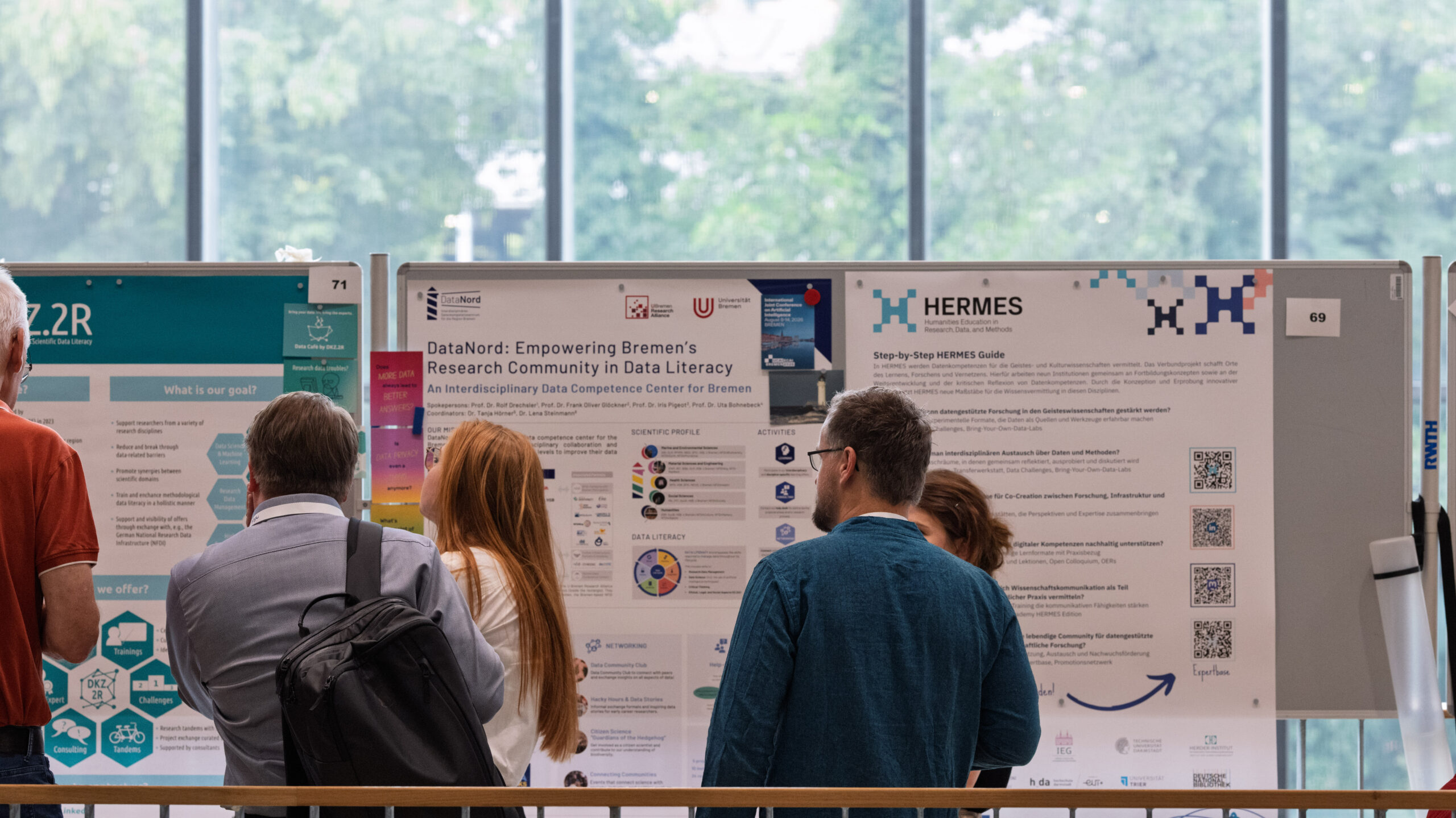
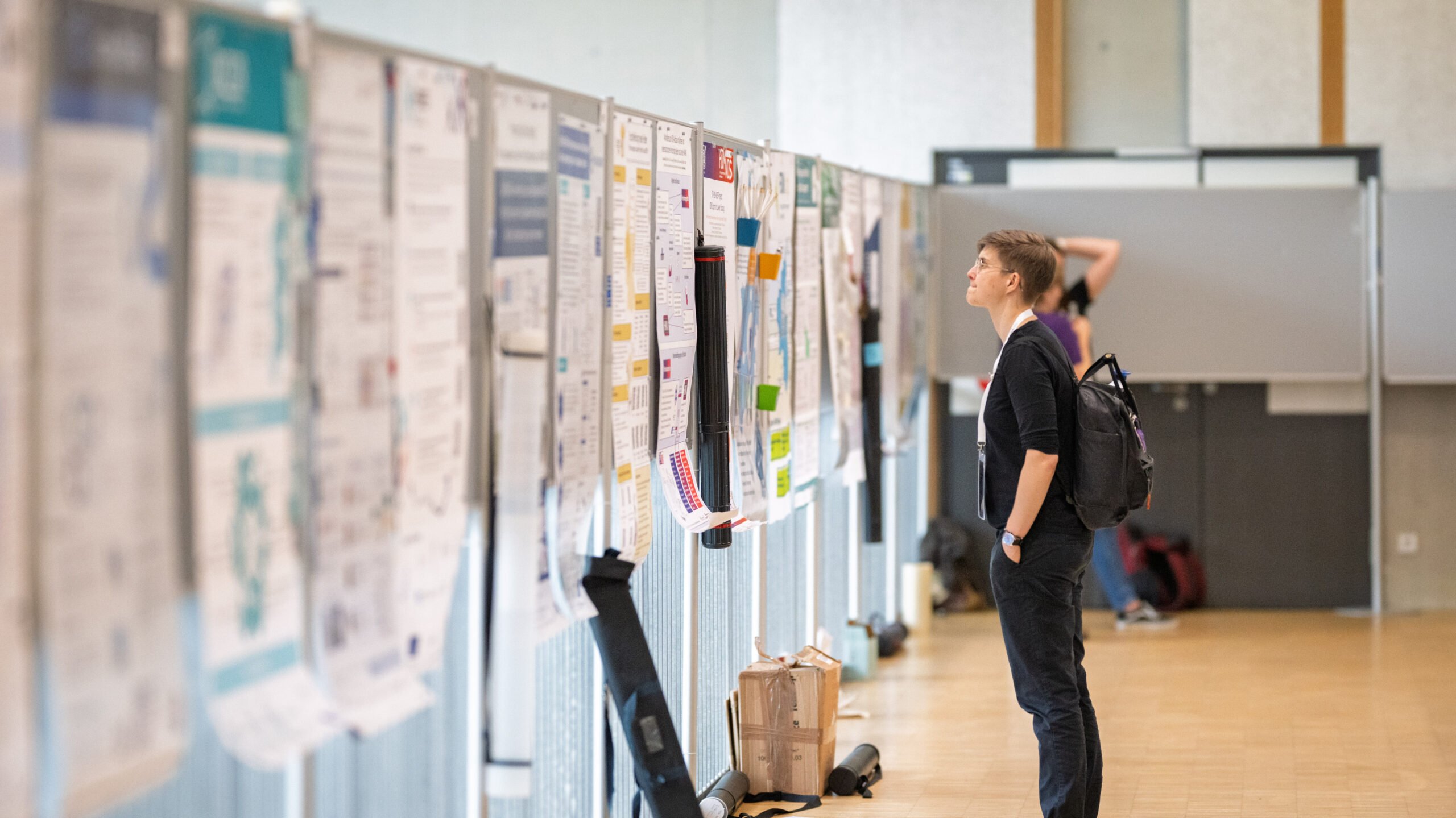
I will remember this year’s CoRDI primarily for its impressive variety of information, interactions and collaborations. As the numerous poster presentations showed, for example, there was a spirit of cooperation and the community flourished. This gives me a positive feeling that we will achieve our goal together.
In addition to the progress made by the consortia on the technical side, I believe that the most important challenge remains reaching our respective communities – because the success of FAIRagro can be measured by the number of people who use our services.
Highlight 4: Connecting Communities
CoRDI created many networking opportunities, not only within the framework of the Market of Opportunities, but also in other formats. In addition to the conference programme, there were smaller side events organised by various groups and networks. However, the undoubted networking highlight was the evening event on Wednesday. Shuttle buses took conference participants from the heart of Aachen city centre to the Melassen Campus, which is located just outside the centre and is home to the Machine Tool Laboratory (WZL), among other things. Shuttle buses took conference participants from the heart of Aachen city centre to the Melaten campus, which is located just outside the centre and is home to the Werkzeugmaschinenlabor (WZL) machine tool laboratory, among other things. Guided tours of the machine hall including robot demonstrations, live music with the RWTH Big Band and a barbecue dinner were offered.
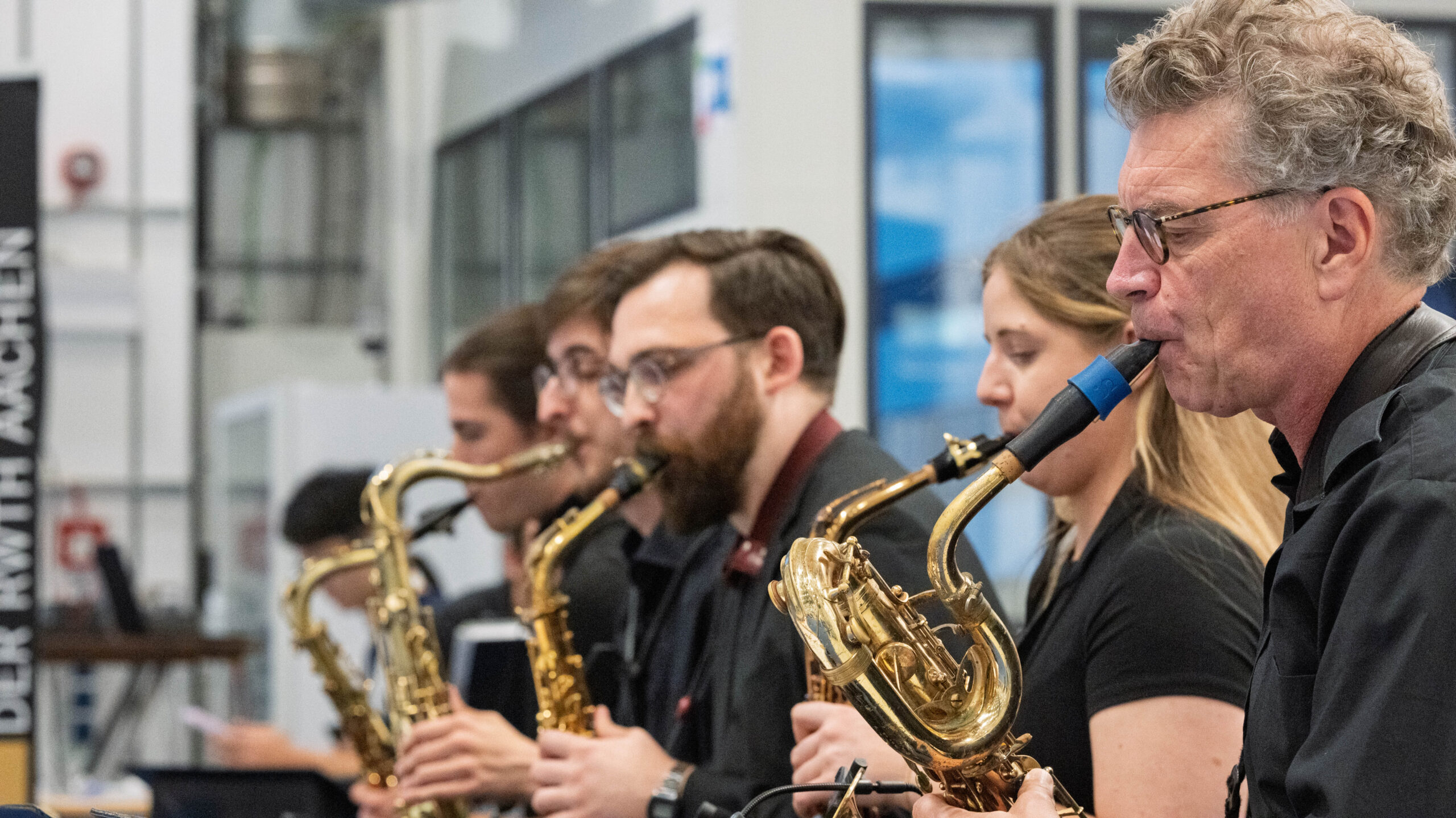
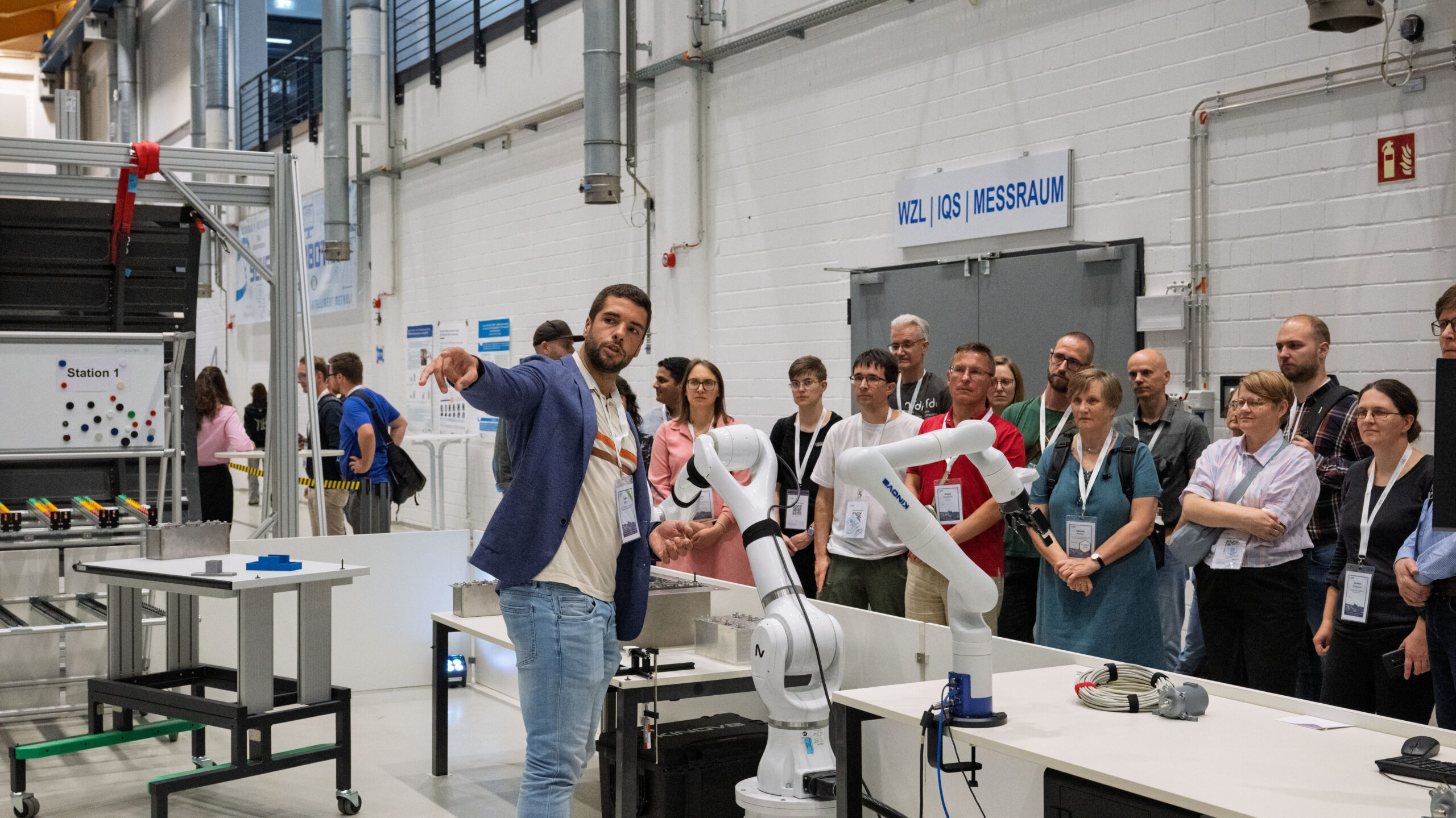
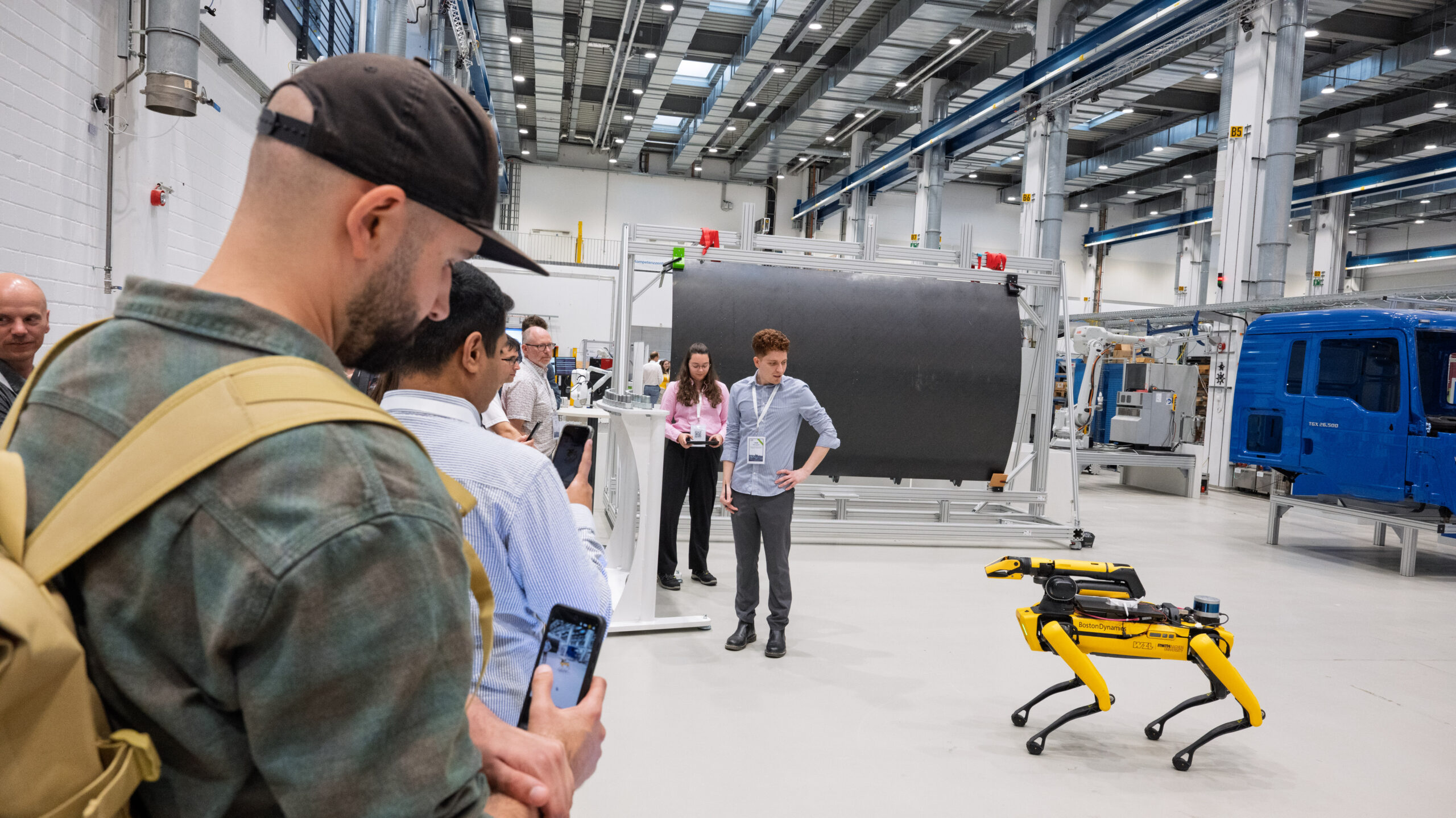
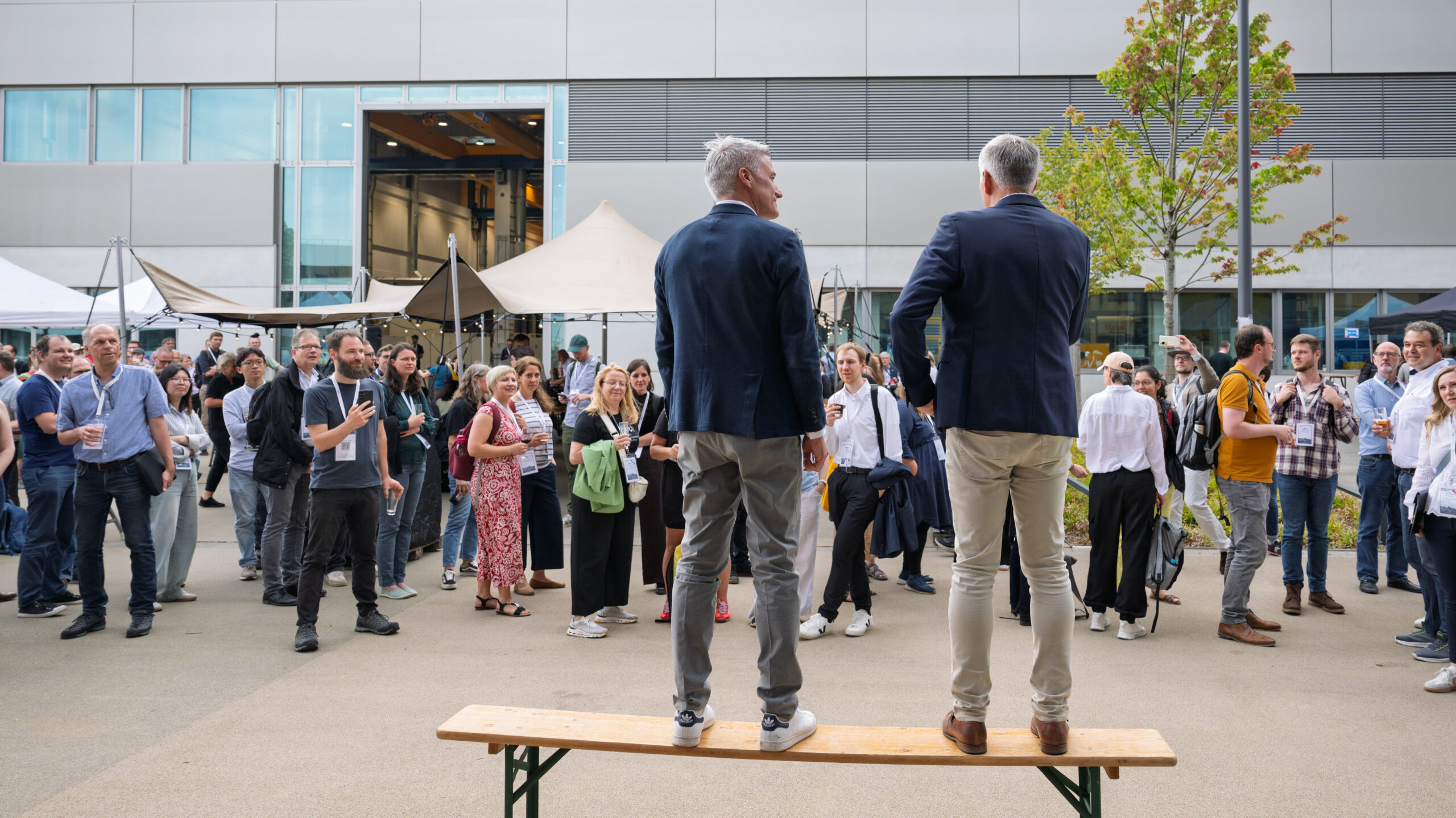
This was my first time at CoRDI and I am very impressed with the concept. I came back with far more ideas for my work than I had taken with me.
Nibbling on gingerbread cookies (Printen) all day long and building sky-high Jenga towers, topped off with legendary night-time conversations with like-minded people.
Highlight 5: The commitment of our community
A three-day conference with almost 700 participants cannot be planned single-handedly. It was only thanks to the support of Local Chair Prof. Dr. Robert Schmitt and his team, Programme Chair Prof. Paul Groth and the 16 dedicated Track Chairs that the event was made possible. A big thank you also goes to the participants, because without submissions, presentations and numerous good questions following the talks, even the best-organised conference would be nothing.
With this in mind, NFDI is already looking forward to CoRDI 2027!
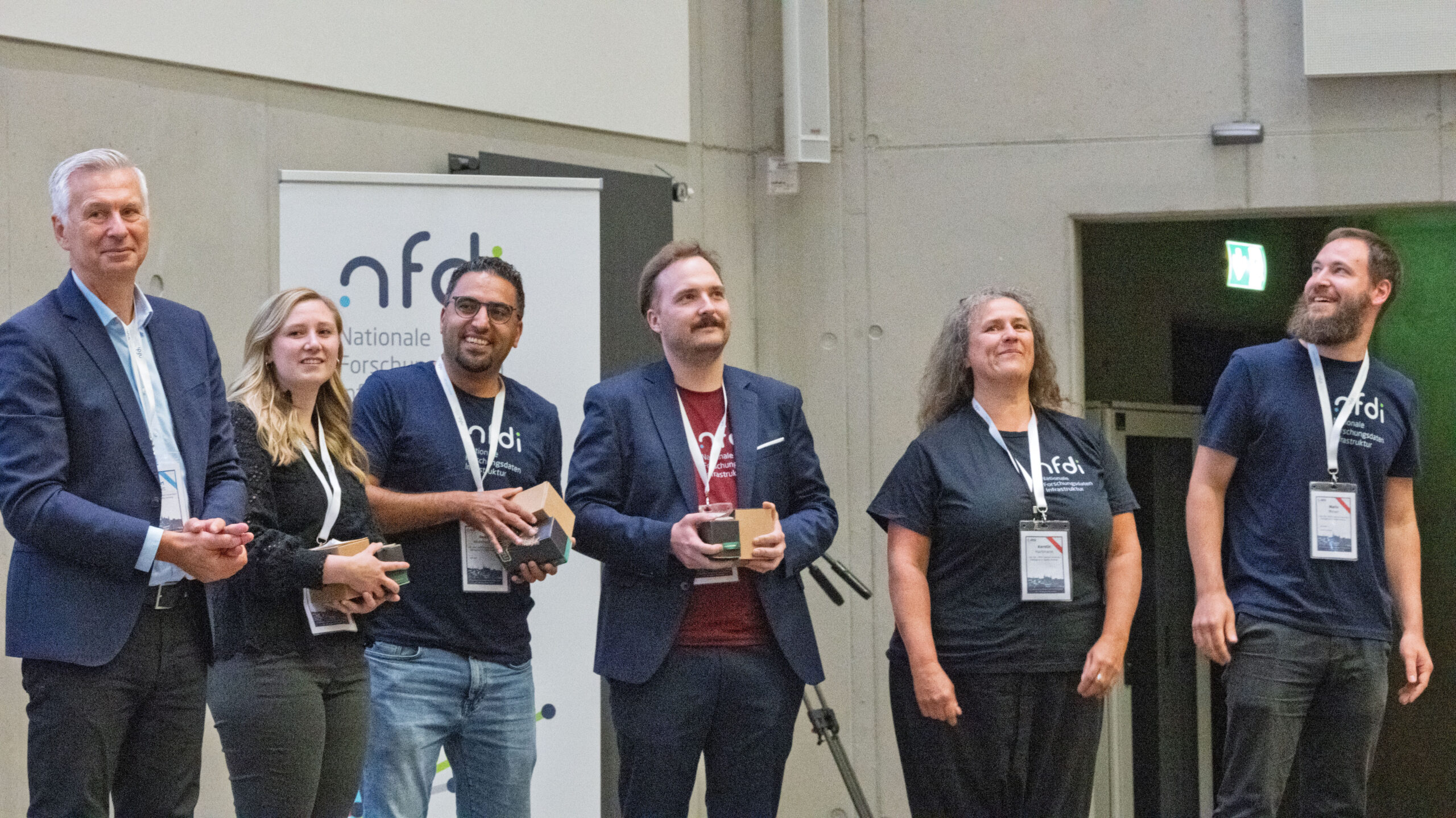
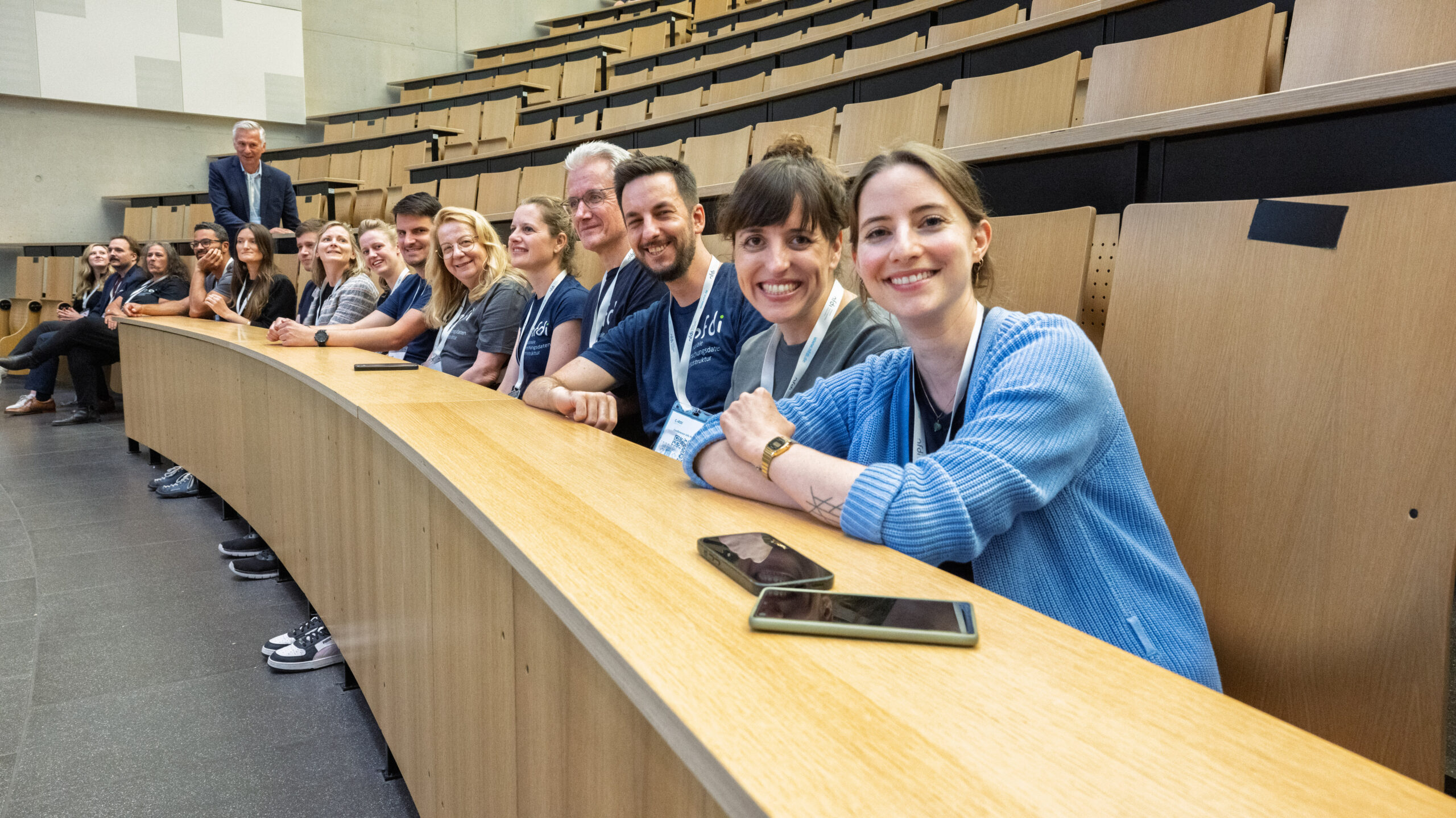
The personal and wonderfully informal exchanges with so many representatives from other consortia were a highlight – during coffee breaks, in the sessions, and between the big band performance and the tour of the machine halls.
Sustainability of infrastructure is not just about funding; it is driven by people, communities, and passion. I hope these can provide the basis of resilience for science across borders in today’s complex geopolitical situation, strengthened through change management that brings more people together around RDM, FAIR services, and open science.
I was very impressed by Petra Gehring’s (RFII) opening address. She emphasised the importance of the sections and Base4NFDI for establishing sustainable, method-driven RDM services – the backbone of a portfolio that ensures the performance of the sciences in a dynamic, collaborative environment. FAIRification is the key to shared but always transparent responsibility.
In addition to the inspiring exchange with experts and new contacts, which gave me in-depth insights into the work of the NFDI and the diverse initiatives in research data management, the closing keynote with its lessons learned from a research infrastructure and a tour of the Fraunhofer Institute for Production Technology, which demonstrated innovative research projects, were the highlights of CORDI 2025 for me.
Photos: Markus Getto, NFDI Office
Other posts
Posts
News ELSA Webinar Series about Research Ethics
Tackling various topics and questions ranging from “What is (research) ethics?” to “Should we care about the CARE principles?” the series aims to engage anyone interested in ethics.
NFDITalks 2026: Inspiring lectures on NFDI and research data
NFDITalks is a series of events dedicated to the future of data research. This year, there are once again many exciting topics from our network and beyond on the agenda.
Video series on the NFDI strategy: Now available on YouTube!
Our video series with NFDI Director Prof. Dr. York Sure-Vetter presents our strategy and its key topics as easily digestible bits and is now available on our YouTube channel.
Recent Comments